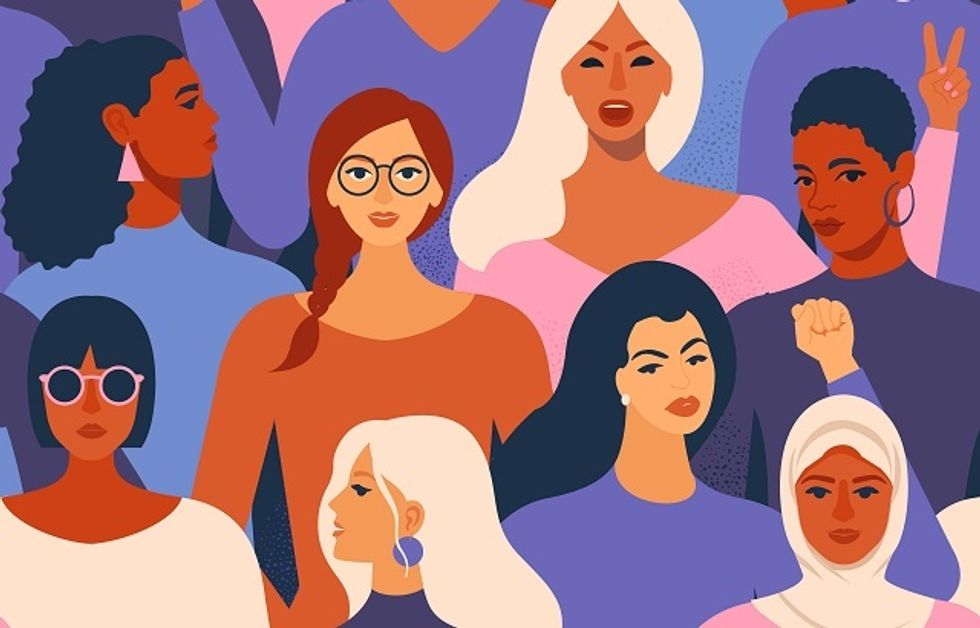During natural disasters, you often hear that nature does not discriminate. When a hurricane hits, people say that the storm does not care if your white or brown, man or woman, living in a shoreside mansion or a trailer park. The unrelenting water washes onto everyone, regardless of your background, and wipes away the social constructs we normally use to distinguish one another as superior, worthy, or privileged.
But is this notion of universally distributed damage during disasters true? Are storms or disease really blind?
The simple answer is no. No, disasters are not color-blind, gender-blind, or class-blind.
From personal experience witnessing their aftermath, I can tell you that hurricanes have a disparate impact. This past spring break, I volunteered to help with Hurricane Micheal disaster relief--Hurricane Micheal was a category 5 hurricane that hit the Florida Panhandle in October 2018. Nearly two years later in 2020, many people with insurance were able to recover, but those still struggling are low-income families without home insurance. The family I served was an elderly couple and the wife had a chronic disease, but they had been living in a tiny RV since 2018. Despite the gaping need among impacted low-income residents in Flordia, there is no more government aid provided to them. The local church community has had to step up and try to rebuild the lives of hundreds of low-income families still devasted by the hurricane.
Hurricanes do not affect all lives equally. The aftermath of devastation is extended for low-income families who continue to pick up the shattered pieces of their lives long after the rest of the world resumes everyday normalcy.
However, after the lastest public health disaster, covid-19, struck I have heard similar sayings proliferate: that the virus affects everyone regardless of your identity or status in society. People look at Tom Hanks or Boris Johnson and say, "See, even the richest, most famous, or most powerful person can get covid." Yes, anyone can get COVID. But differences in circumstances can influence someone's risk to exposure, risk of mortality, and other economic/social factors associated with the pandemic.
One particular group I want to highlight is women. In the midst of so many health and economic challenges, one might wonder if feminism is the most pressing issue at the moment. Should gender equality take a step back and wait for the virus-infected dust to settle?
Absolutely not. In fact, the opposite reaction is necessary right now. While early studies indicate that COVID19 as purely an illness appears to affect men more severely, women and girls are at a greater risk for exposure and will disproportionally bear the social and economic brunt of the pandemic.
High levels of women work at sectors most at risk and most affected, including the healthcare industry, the travel sector, and the restaurant and hospitality businesses.
From an economic perspective, the pandemic is predicted to have a disproportionately negative effect on their employment opportunities and lifetime earnings.
"Across the globe, women earn less, save less, hold less secure jobs, are more likely to be employed in the informal sector. They have less access to social protections and are the majority of single-parent households. Their capacity to absorb economic shocks is, therefore, less than that of men." Policy Brief: The Impact of COVID-19 on Women
In the home, women shoulder the majority of increased care work and suffer from spikes of up to 30% more domestic violence during stay at home orders.
In the South and Midwest, government leaders are using the pandemic as the political weapon to ben abortion, exploiting the moment to restrict women's reproductive health care.
Additionally, there are a host of other social-justice issues during the pandemic that relate to feminist concerns, including the higher death rates of Black Americans, the increased infection risk of immigrants working in factories, and the rapid spread of covid among prison populations. The pandemic reveals cracks already there in a broken system and only makes them more prominent. While natural disasters may appear unbiased, sexism, racism, and all forms of discrimination persist long after the storm first hits.Resources:
Start dividing family housework



















